 By Chris McCusker, Ph.D.
By Chris McCusker, Ph.D.
TLG Senior Consultant
I have heard many experts over the years share the following view: a crisis reveals a leader’s character. This seems to make sense anecdotally. Tony Hayward wanting his life back following the tragic 2008 BP oil spill. Sir Ernest Shackleton leading the entire crew of the Endurance back to safety following the Imperial Trans-Atlantic Expedition of 1914-1917. A crisis may also reveal an organization’s character. Famous examples include the 1982 case of Johnson and Johnson with Tylenol or, more recently, The Cleveland Clinic Abu Dhabi during Covid. What is more, we can also think about character on a national level. As the world is watching us now more than ever, I would like to share some thoughts on our “national character.”
Individualism and Collectivism
Research by Geert Hofstede, Harry Triandis, and others has shown time and again that individualism-collectivism is the most important source of cultural variation around the globe. In other words, the biggest cultural differences have been found between countries that place primacy on the individual or the collective. The USA has consistently ranked as the most individualistic country in the world.
Individualism is a source of our greatness. It is also potentially the source of our problems. The difference lies in whether we continue to build on our legacy of ethical individualism. My view is that with humility, curiosity, and self-reliance we can continue to build on our legacy of ethical individualism.
Ethical Individualism
“Self-interest is powerful motivation. Freedom to ‘do my own thing’ and to pursue individual happiness is a motivational orientation that works. As Adam Smith once wrote, “It is not from the benevolence of the butcher, the brewer, or the baker that we expect our dinner, but from their regard to their own interest.” – Adam Smith, The Wealth of Nation, Books 1-3
Individualism can be a problem if we celebrate individuality so much that we become self-absorbed and selfish. We must add humility to our self-interest to keep things ethical. Bob and Lyn Turknett define humility as “thinking more of other people.” Pursue your self-interest vigorously. At the same time, pause and appreciate and elevate others. We can be great individuals and at the same time elevate others around us.
Another virtue of ethical individualism is curiosity. We must adopt a mindset of inquiry. Ask questions and listen. Learn what others think. Sometimes I worry that our news programs are solely focused on the U.S. There is a big, amazing world out there. Ethical individualism requires that we focus elsewhere. I like to watch BBC news and al Jazeera news for this reason. We are interesting enough and the world is watching us, but let’s not be self-absorbed.
Self-reliance is one of the cardinal virtues of ethical individualism. To stand on one’s own, and to make a way for oneself is at the core of who we are. But we must remember the wisdom of Alexis de Toqueville who studied our democracy centuries ago. He pointed out that our self-reliance is a key to our success, but our strength comes from our sense of community. We volunteer and donate at levels more than any other nation. We balance self-reliance and a helping hand. This is a source of our greatness.
A Call for Leadership
The world is facing many crises. I am optimistic. I feel that as long as we stay true to our national character, we will lead the world to wise solutions to our problems. It all starts with our culture of ethical individualism. A society of individuals – humble, curious, and self-reliant, is a potent combination.
The world is watching… and waiting for our leadership. Let’s be ourselves.

